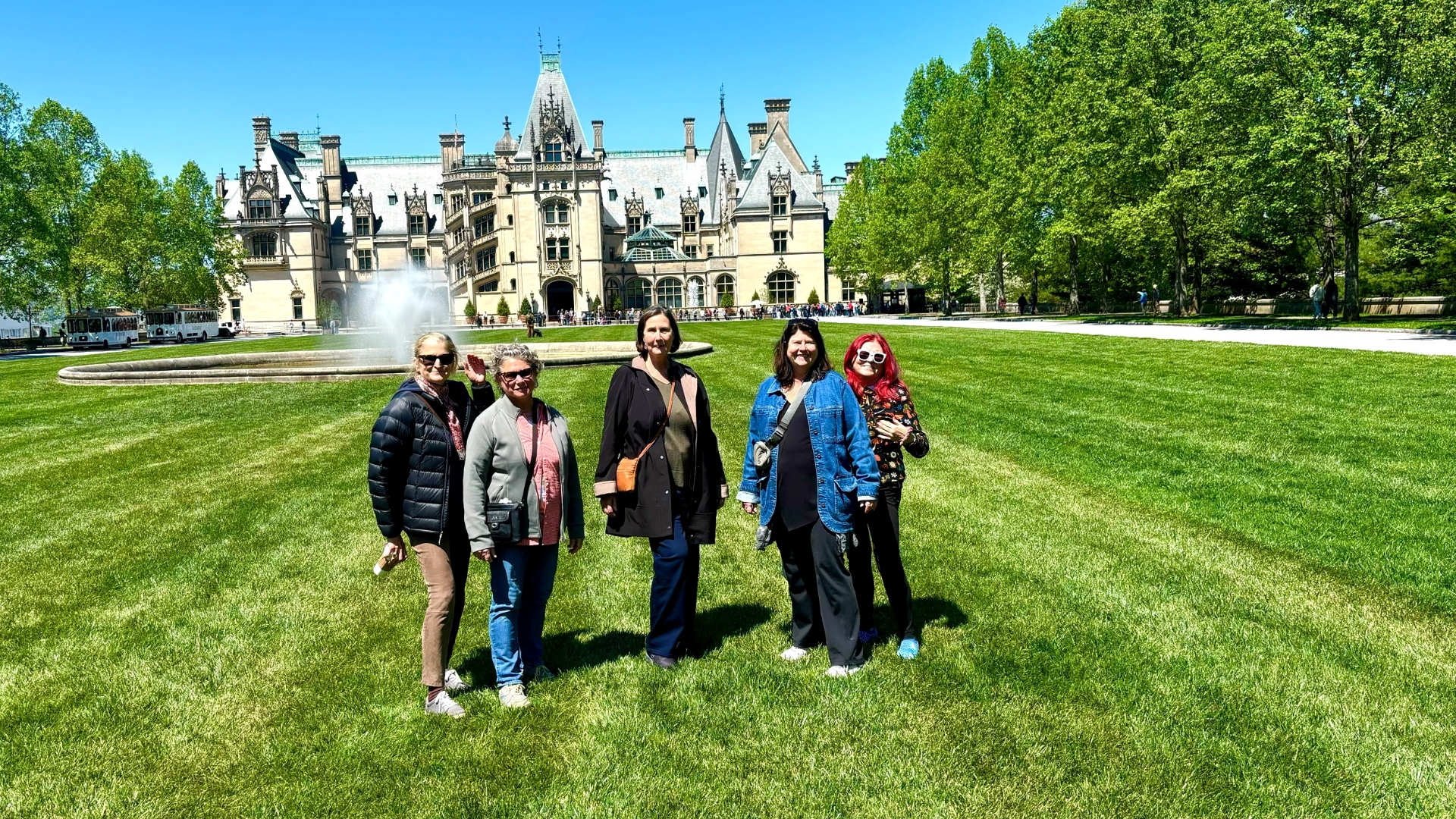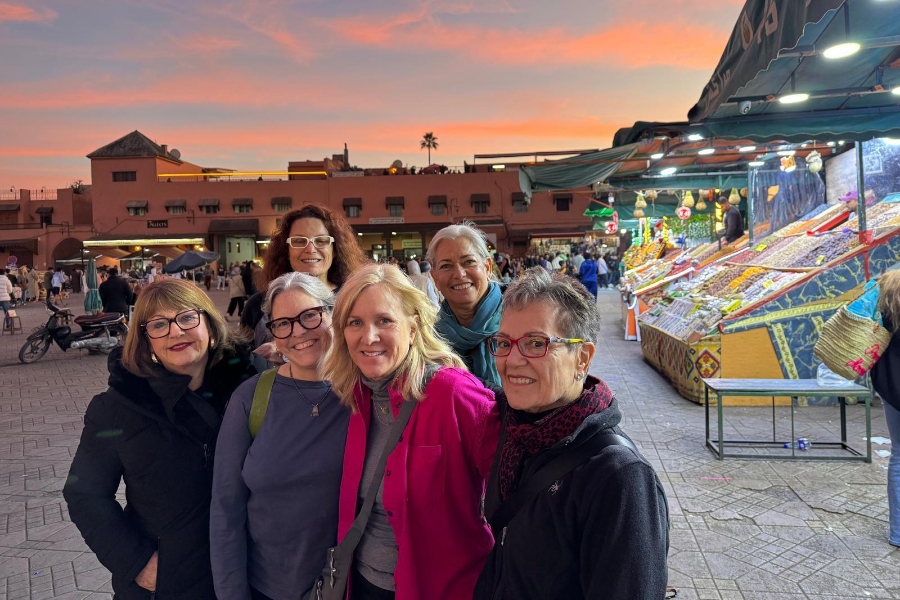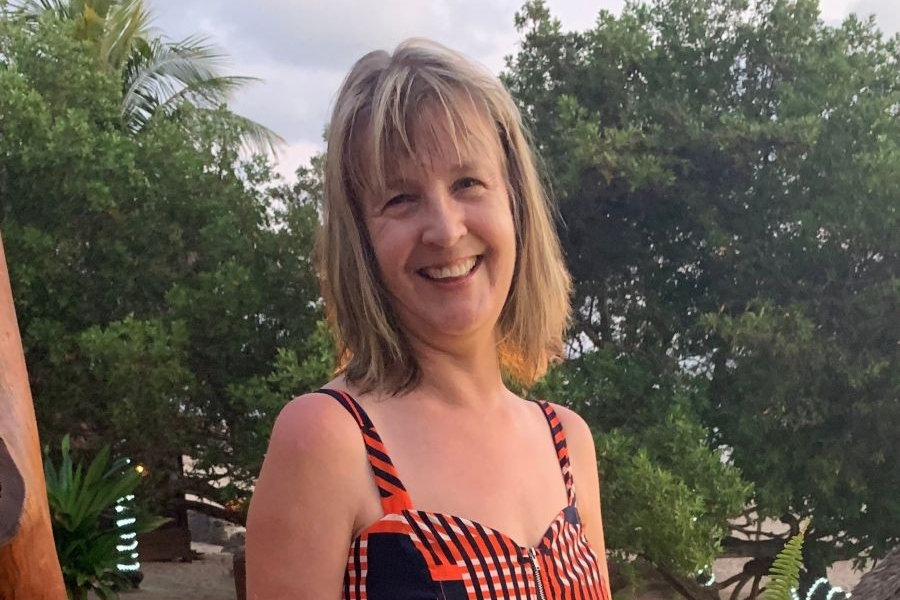The impetus for Nexttribe‘s recent non-partisan “Women Lead the Healing” panel discussion between three Republican voters and three Democratic ones was the sense of hopelessness interspersed with the joy and relief I experienced when Joe Biden was declared the winner of the Presidential race. Joy and relief because the Trump nightmare was arrested and sanity would eventually prevail. Hopelessness seeing the anger and pain of Trump supporters who were gearing up for four years of resistance fueled by what, to my mind, were mostly lies.
I’m among the fortunate who has not lost friends or family over the yawning political gulf—although I despaired when a relative posted easily-disproved conspiracy theories aimed at Dr. Anthony Fauci.
Read More: Politics From Another Perspective: A Meditation on Healing, Balance, and Trust
Why We Zoomed
As a psychotherapist/human being who has loved, lost, battled, rejoiced, suffered, and hopefully learned a few things in my 60-plus years on the planet, I know it is futile—a gigantic waste of breath and saliva which in these COVID-infused days could cost a life—to attempt to wrest someone’s mind to your point of view by arguing, ridiculing, begging, or issuing ultimatums.
When I conduct couples therapy, the first step is teaching each partner how to truly listen. The object is not necessarily to get them to agree with one another but to have understanding and empathy for the why behind the opposing viewpoint.
Are you interested in helping to bridge the divide in the country? NextTribe wants your help, and to start, we’d love to hear some ideas from you here.
Invariably both partners have the same desires—to feel loved, listened to, nurtured, respected, to raise and support a family, and enjoy fun times. Where the two disagree is on how to reach these complementary goals. I often suggest to couples, “Say you’re in a rowboat on a lake. Both of you want to reach shore but if you’re paddling in opposite directions the boat won’t move.”
How you regard a political candidate or party is one thing. But regarding anyone who votes for “the other side” as part of a sub species is a rowboat permanently cast adrift.
I’ve been guilty of sharing insulting memes lambasting Trump voters. But I’m exhausted—from COVID with all its fears and restrictions—full of despair for the nation, sometimes believing the other side is 100 percent wrong in their beliefs, thus beyond redemption. I will never reach the extremists on either side but that is not the majority no matter what I read on my social media.
The Perception Gap
The Perception Gap, an undertaking begun in late 2018 by the non-profit More in Common, found that with each passing year Democrats and Republicans‘ disdain for one another leapfrogs. This disdain leads to snap judgments and descriptions of “opponents as hateful, ignorant and bigoted.”
We’ve all witnessed the ugliness wrought by increasingly extreme polarization. The result, according to Perception Gap’s findings: “We trust each other less, fear each other more, and struggle to understand how those on the other side of the political fence could possibly hold so many wrong-headed views.”
In an email Daniel Yudkib, a postdoctoral fellow who worked on the Perception Gap, elaborated, “Far too often political disagreements come from a failure to listen. We resist hearing the other side and instead choose to see them as a caricature. By holding a space for people to express their core values—and without trying to persuade or pass judgment—we will find that we have more in common than we imagined.”
Was I Brave or Nuts?
But was it too soon to expect Republicans and Democrats to get beyond the caricature image of their opponents? Many of the Facebook friends on both sides I approached to participate in the zoom declined, united in feeling they hadn’t healed enough to forgive the other side, and likely never would. Others told me there were no reasonable women on the other side. Then there were comments about my bravery at subjecting myself to what might be a nightmarish rout akin to the first debate between Trump and Biden!
I pooh-poohed these concerns: I had years of experience conducting therapy sessions between dysfunctional family members. Still, inwardly I worried: Could I pull this off?
The most important factor was ‘casting’ the zoom with women who were open if not eager to hear from everyone.
Pre-interviewing the Republican participants involved putting aside my stereotypes. Sadly, all three women had felt derision by Democrats:
- Leslie Elliot, a Texas-based hotel executive explained during our phone call, “I’ve had some terrible experiences with the radical left—including being physically attacked by a childhood friend who threw me up against a bench for voting for Trump.” Leslie sighed, “I want to be accepted for my humanity.”
- Benita Talati, a Virginia-based attorney and independent with moderate political views, voted for Hilary in 2016. She traced the roots of her support for Trump this time around to the 2017 Women’s March when fellow participants insulted the Indian American by assuming she was not from the U.S. because she is a minority. (Benita was born in Queens!) Other reasons Benita didn’t vote for the Democratic team: “Biden’s age and the fear world leaders won’t take Kamala seriously.”
- Karen Hoghaug, a Texas-based high school government and economics teacher “has been called a lot of names over the past four years.” She told me, “For four years Democrats shouted, ‘Not My President,’ and now you want to make peace?”
The Democrats who stepped up to the plate were:
- Dr. Karin Tamarius, the Berkeley-based founder of Smart Politics, an organization that teaches progressives how to conduct productive conversations with people on the right. She told me: “People who have political discussions often genuinely don’t know how to talk about emotions.”
- Sarah Fox, a NYC-based artist and Democratic socialist said, “At some point we need to be cognizant that while we are rejoicing others are hurting.”
- Mara Gordon, a healthcare worker and New York State resident who is “left of center” reported, “I have loathed Trump for four years, but I’ve also maintained friendships with Trump supporters.”
The ground rules for attempting this reach across the aisle included treating one another with respect and kindness. The Zoom session wasn’t about changing anyone’s minds, but finding our common humanity.
The Highlights
I was so relieved that we got through the session with no shouting, from the participants or the 50-plus observers on the call. It was encouraging that everyone was doing her best to comprehend and empathize.
On Misperceptions That Divide Us:
Mara Gordon believes many Republicans erroneously believe Democrats are “financially irresponsible, weak, dependent, expecting others to take care of their problems, particularly based on ACA stuff.” She is financially conservative, but with a pre-existing condition, she “couldn’t purchase health care for less than $60,000 a year.”
Karen Hoghaug “lost health insurance due to the ACA,” as she couldn’t afford the subsidies even if she’d wanted the subsidies. She also disputed the assumption that all Republicans are racist or okay with policies that support children in cages.
On How to Get Out of Our Left/Right News Bubble:
This need to move beyond CNN and Fox seems especially pertinent given varying viewpoints about a recent incident where—depending on your bubble—an elderly Republican was either knocked down by BLM members without provocation or the Trump supporter was not elderly and not knocked down!
One suggestion for mind expansion was to subscribe to The Flipside, which publishes perspectives on both sides of an issue.
Karin Tamarius recommended families with differing perspectives participate in a “news challenge”—watching each other’s news shows for a week, then discussing not “facts” but the approaches taken by the different sources.
Where to Go From Here:
A few goals expressed by panelists included making the country safe for our children and retaining our sense of humor. If we’d gathered in person there would definitely have been hugs across the aisle.
At the end of the hour we discussed how to continue our bridge-building, perhaps along the model of The Sisterhood of Salaam Shalom, which builds unity between Jewish and Muslim women via regional chapters, a national conference and (in pre-corona times) annual trips.
Liberal Sarah Fox summed up what is needed: “mutual kindness.” To truly reach across the aisle and grab each other’s hands, we need to put aside the politics and look at one another’s hearts. Through our discussion, I believe we made an important and much-needed step in that direction.
Read More: Owning Up to My Own Racism: A First Step Toward Creating Change





















0 Comments